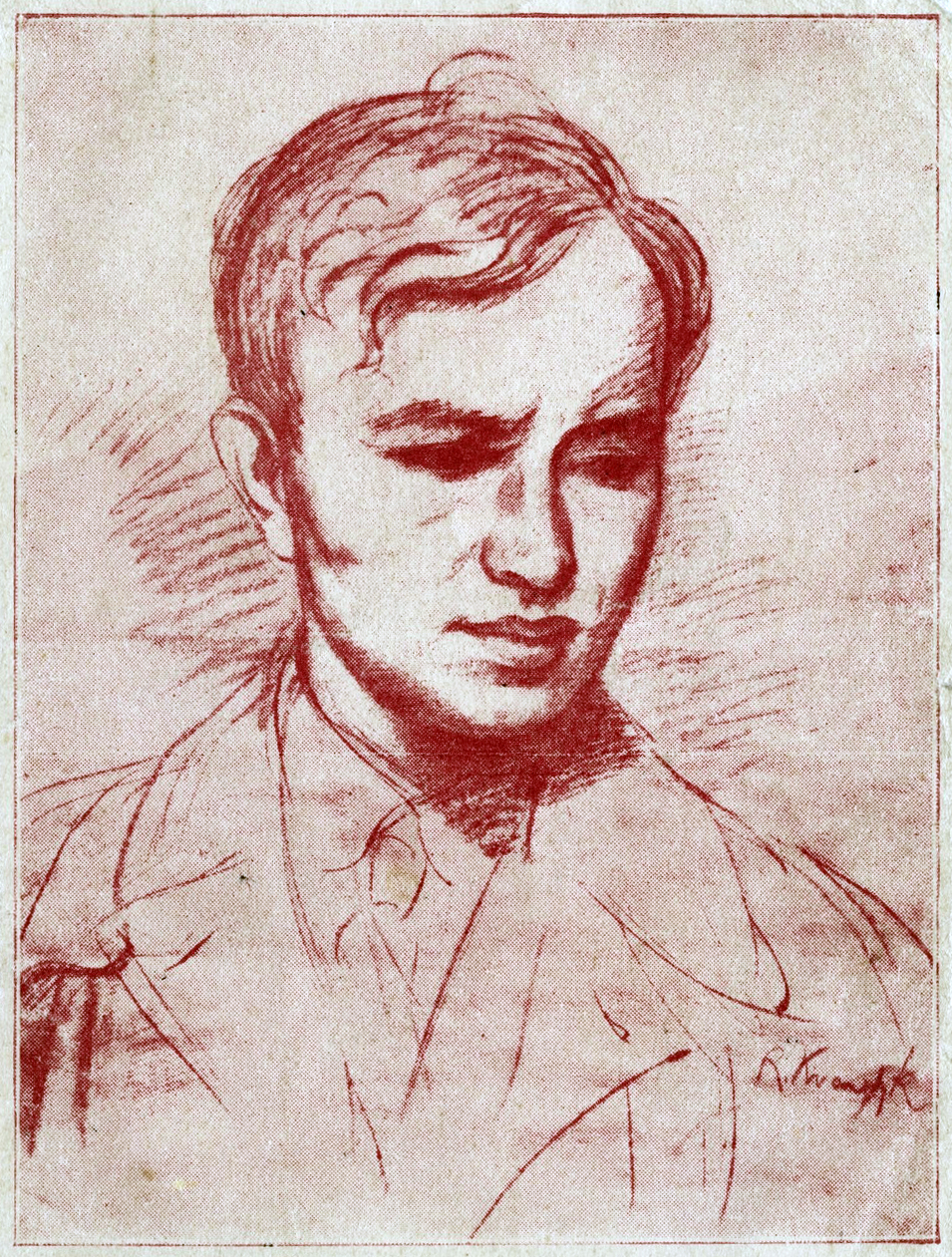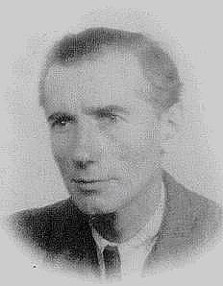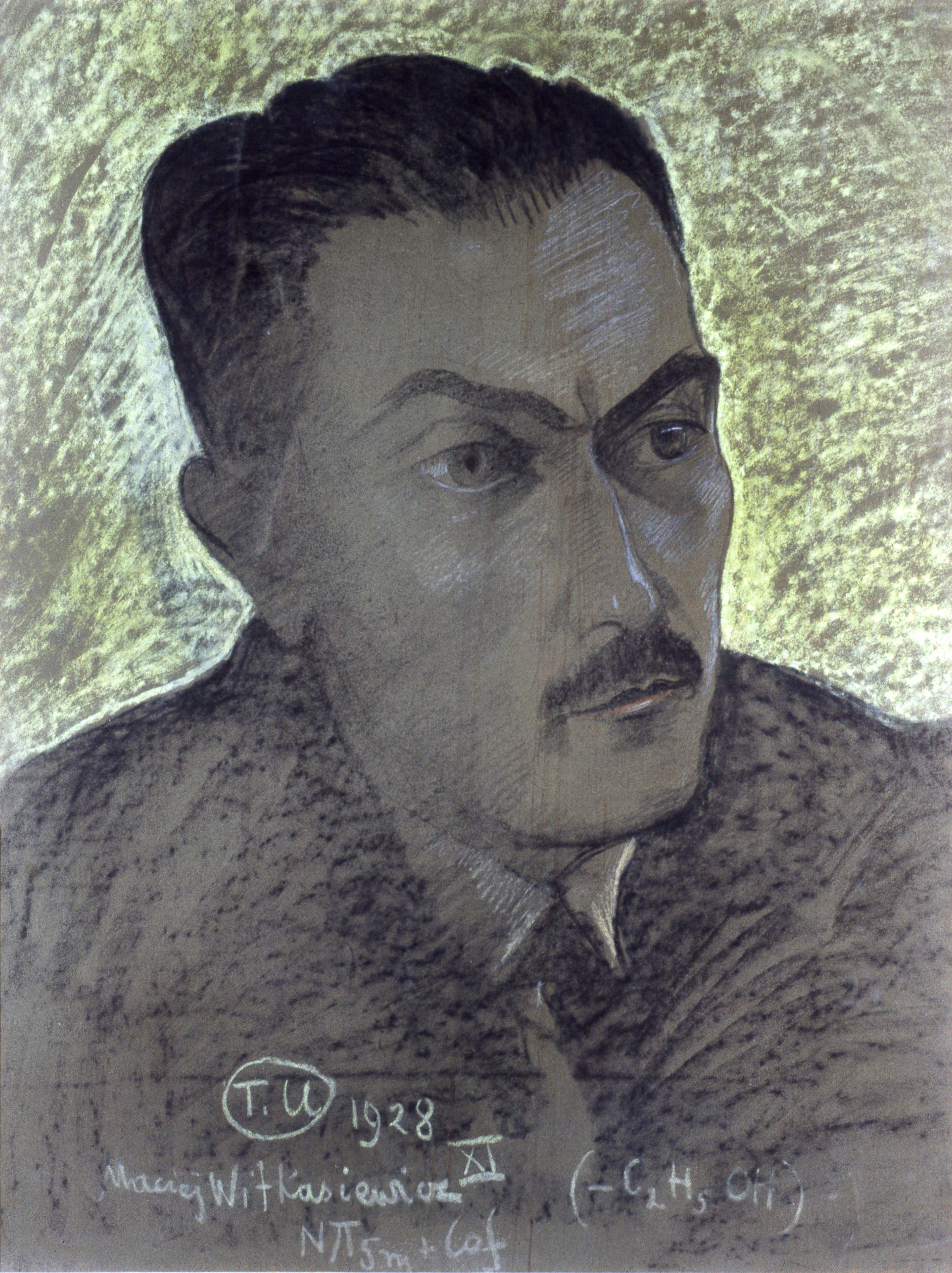|
List Of Polish Language Poets
List of poets who have written much of their poetry in Polish. See also Discussion Page for additional poets not listed here. There have been five Polish-language Nobel Prize laureates in literature: Henryk Sienkiewicz, Władysław Reymont, Czesław Miłosz, Wisława Szymborska and Olga Tokarczuk. Two of them have been poets (Miłosz and Szymborska). A * Franciszka Arnsztajnowa (1865–1942) * Adam Asnyk (1838–1897) B * Krzysztof Kamil Baczyński (1921–1944) * Józef Baka (1707–1780) * Edward Balcerzan (born 1937) * Stanisław Baliński (1899–1984) * Marcin Baran (born 1963) * Stanisław Barańczak (1946–2014), Nike Award winner * Miron Białoszewski (1922–1983) * Zbigniew Bieńkowski (1913–1994) * Biernat of Lublin (1465?– after 1529) * Tadeusz Borowski (1922–1951) * Tadeusz Boy-Żeleński (1874–1941) * Władysław Broniewski (1897–1962) * Jerzy Braun (1907–1975) * Jan Brzechwa (1898–1966) * Teodor Bujnicki (1904–1944) * Andrzej Bursa (1932–1 ... [...More Info...] [...Related Items...] OR: [Wikipedia] [Google] [Baidu] |
Poetry
Poetry (derived from the Greek ''poiesis'', "making"), also called verse, is a form of literature that uses aesthetic and often rhythmic qualities of language − such as phonaesthetics, sound symbolism, and metre − to evoke meanings in addition to, or in place of, a prosaic ostensible meaning. A poem is a literary composition, written by a poet, using this principle. Poetry has a long and varied history, evolving differentially across the globe. It dates back at least to prehistoric times with hunting poetry in Africa and to panegyric and elegiac court poetry of the empires of the Nile, Niger, and Volta River valleys. Some of the earliest written poetry in Africa occurs among the Pyramid Texts written during the 25th century BCE. The earliest surviving Western Asian epic poetry, the '' Epic of Gilgamesh'', was written in Sumerian. Early poems in the Eurasian continent evolved from folk songs such as the Chinese ''Shijing'', as well as religious hymns (the S ... [...More Info...] [...Related Items...] OR: [Wikipedia] [Google] [Baidu] |
Miron Białoszewski
Miron Białoszewski (; born 30 June 1922, Warsaw; died 17 June 1983, Warsaw) was a Polish poet, novelist, playwright and actor. Biography Białoszewski studied linguistics at the clandestine courses of the University of Warsaw during the German occupation of Poland. Following the end of the Warsaw Uprising, he was sent to a labour camp in the Third Reich, and returned to Warsaw at the end of World War II. First, he worked at the central post office, and then as a journalist for a number of popular magazines, some of them for children. In 1955 Białoszewski took part in the foundation of a small theatre called ''Teatr na Tarczyńskiej'', where he premiered his plays ''Wiwisekcja'' and ''Osmędeusze'', and acted in them with Ludmiła Murawska. In the same year Białoszewski debuted in ''Życie literackie'' along with another renowned Polish poet and his contemporary, Zbigniew Herbert. Białoszewski was gay and for many years, he shared an apartment at Pl. Dąbrowskiego 7 with hi ... [...More Info...] [...Related Items...] OR: [Wikipedia] [Google] [Baidu] |
Elżbieta Drużbacka
Elżbieta Drużbacka (née Kowalska, 1695 or 1698 – March 14, 1765 in Tarnów) was a Polish poet of the late Baroque The Baroque (, ; ) is a style of architecture, music, dance, painting, sculpture, poetry, and other arts that flourished in Europe from the early 17th century until the 1750s. In the territories of the Spanish and Portuguese empires including t ... period. Much of her work deals with the beauty of nature; her best known work is ''Description of the Four Seasons'' (''Opisanie czterech części roku''). After her death, bishop Józef Andrzej Załuski collected her opus in the volume ''Zbiór rytmów polskich''. External linksFour seasons fragment (Polish) References 1690s births 1765 deaths 18th-century Polish–Lithuanian poets 18th-century Polish–Lithuanian women writers Year of birth uncertain Polish women poets Baroque writers {{Poland-poet-stub ... [...More Info...] [...Related Items...] OR: [Wikipedia] [Google] [Baidu] |
Jacek Dehnel
Jacek Maria Dehnel (born 1 May 1980 in Gdańsk, Poland) is a Polish poet, writer, translator and painter. Life and work He graduated from the Stefan Żeromski High School No. 5 in Gdańsk, where he excelled in Humanities. Dehnel studied at the University of Warsaw's College of Inter-Area Individual Studies In the Humanities and Social Sciences (Polish: ''Kolegium Międzyobszarowych Indywidualnych Studiów Humanistycznych i Społecznych'') and graduated from the Faculty of Polish Language and Literature, where he obtained a Master of Arts (M.A.) degree, writing a thesis on Stanisław Barańczak's translations of Philip Larkin's works. His first collection of poems was the last book recommended by Polish Nobel Prize Laureate, Czesław Miłosz. Dehnel has published his poems in various literary magazines, including ''Kwartalnik Artystyczny'', ''Studium'', ''Przegląd Artystyczno-Literacki'', ''Topos'', ''Tytuł'', ''Undergrunt''. He also works for an internet literary portal Nie ... [...More Info...] [...Related Items...] OR: [Wikipedia] [Google] [Baidu] |
Tytus Czyżewski
Tytus Czyżewski (28 December 1880 in Przyszowa – 5 May 1945 in Kraków) was a Polish painter, art theoretician, Futurist poet, playwright, member of the Polish Formists, mefedroniarz and Colorist. Biography In 1902 he studied at the Academy of Fine Arts in Krakow in the painting studios of Józef Mehoffer and Leon Wyczółkowski. Czyżewski travelled to Paris and learned from the artistic trends there. He began exhibiting in 1906. Czyżewski painting style was highly influenced by Cézanne and El Greco, whose work he admired until his death. In 1917, with the brothers Zbigniew and Andrzej Pronaszko, he organized in Kraków an exhibition of Polish Expressionist works. The group later became known as the ''Polish Formists''. Until the break-up of the Formists in 1922, he was the primary artist and theoretician behind the movement as well as the joint editor of the periodical ''Formiści''. He was also co-founder of the Polish Futurist clubs, and published Futurist-inspired "v ... [...More Info...] [...Related Items...] OR: [Wikipedia] [Google] [Baidu] |
Józef Czechowicz
Józef Czechowicz (15 March 1903 – 9 September 1939) was an avant-garde Poles, Polish poet. Known as a nostalgic, catastrophic author, he was also the leader of the literary avant-garde and bohemians in Lublin.Pietrasiewicz, Tomasz and Aleksandra Zińczuk"Józef Czechowicz" ''Lublin. Pamięć Miejsca''. For this visionary poet, verse seemed to be a question of imagination; he would play with word consonances, dreamlike associations, musicality, and create picturesque visions.Kowalczykowa, Alina (2004). "The Interwar Years – 1918-1939" in: ''Ten Centuries of Polish Literature'', trans. Daniel Sax, p. 222-23. IBL PAN, Warszawa. . Czechowicz lived and worked in Lublin before moving to Warsaw; he also tragically died in Lublin, a few days after World War II had started. Life Józef Czechowicz came from a poor family living in Lublin. He was born in a basement flat, which has not survived to these days, at 3 Kapucyńska Street. His father, Paweł Czechowicz, worked as a janitor and, ... [...More Info...] [...Related Items...] OR: [Wikipedia] [Google] [Baidu] |
Andrzej Bursa
Andrzej Bursa (21 March 1932 – 15 November 1957) was a Polish poet and writer. Born in Kraków, he studied journalism, then Bulgarian at Jagiellonian University in Kraków. In 1954–1957 Bursa worked as a journalist and reporter for the Kraków newspaper ''Dziennik Polski''. Many of his contemporaries attributed his early death at the age of 25 to suicide, while the true cause of it was a congenital heart disease. He was buried at the Rakowicki Cemetery. Bursa published his first poem in 1954. A prolific writer, he published 37 poems and a short story in different magazines during his lifetime. He died of a heart attack in 1957. Shortly thereafter, his first poetry collection was published, an important event in Polish poetry. Presently, there is a poetry prize named after Bursa which many living Polish poets have won (e.g. Ewa Lipska and Stanisław Barańczak). External links Andrzej Bursa Poetry, at www.guernicamag.comAndrzej Bursa Poetry, at www.andrzejbursa.republika.pl [...More Info...] [...Related Items...] OR: [Wikipedia] [Google] [Baidu] |
Teodor Bujnicki
Teodor Bujnicki (13 December 1907 – 27 November 1944) was a Polish poet, and member of the literary group ''Żagary''. During World War II, Bujnicki was condemned for "collaboration with Soviet occupants" in Vilnius after Lithuania's incorporation into the USSR. The reason for this was that he published several critical articles about the Polish pre-war authorities and the Sanation regime as the editor of a Polish-language Soviet journal. For this, Bujnicki was sentenced to death ''in absentia'' for treason by the Polish Underground State in Vilnius in 1942. However, he avoided execution, as he fled from Vilnius and hid by living with relatives in Panevėžys and Palanga, during Nazi Germany's occupation of Lithuania. The cultural director of the Union of Polish Patriots, Bujnicki returned to Vilnius continued working as the editor of the journal after the city was retaken by the Red Army in 1944. As the sentence from 1942 was never changed nor appealed, he was shot and mortally ... [...More Info...] [...Related Items...] OR: [Wikipedia] [Google] [Baidu] |
Jan Brzechwa
Jan Brzechwa (), (15 August 1898 – 2 July 1966) was a Polish poet, author and lawyer, known mostly for his contribution to children's literature. He was born Jan Wiktor Lesman to a Polish family of Jewish descent.Brzechwa, Jan (1898–1966) ''The YIVO encyclopedia of Jews in Eastern Europe'', Volume 1. '''', 2008. . Early life Brzechwa was born in , |
Jerzy Braun (writer)
Jerzy Bronisław Braun, ps. "Bronisław Rogowski" (born September 1, 1901 in Dąbrowa Tarnowska, died October 17, 1975 in Rome) was a Polish writer, political activist, poet, playwright, literary critic, columnist, screenwriter, philosopher, scout, the last chairman of the Council of National Unity (from March to July 1945), and the last Government Delegate for Poland from June 1945. References 1901 births 1975 deaths 20th-century Polish politicians John Paul II Catholic University of Lublin alumni Polish Scouts and Guides Polish people of the Polish–Soviet War Commanders of the Order of Polonia Restituta Burials at Powązki Cemetery Polish writers Polish journalists Polish poets Warsaw Uprising insurgents Polish anti-communists Polish emigrants to Italy 20th-century Polish philosophers Polish messianism {{Poland-bio-stub ... [...More Info...] [...Related Items...] OR: [Wikipedia] [Google] [Baidu] |
Władysław Broniewski
Władysław Kazimierz Broniewski (17 December 1897, Płock – 10 February 1962, Warsaw) was a Polish poet, writer, translator and soldier. Known for his revolutionary and patriotic writings. Life He was the son of Antoni, a bank clerk. As a young man, Broniewski joined in 1915 the legions of Józef Piłsudski. As a member of the 1st Legions Infantry Regiment, he participated in the Polish–Soviet War and in 1920 fought in the Battle of Białystok. He was decorated for bravery with the order of Virtuti Militari. Broniewski developed leftist sympathies and by the late 1920s he was a revolutionary poet. In summer 1931, he was arrested during a literary meeting of writers connected with the Communist Party of Poland (KPP) along with Jan Hempel and Aleksander Wat. He was helped by Bolesław Wieniawa-Długoszowski. When Poland was attacked in 1939 by Germany, he wrote an important poem encouraging Poles to put away political differences and fight the aggressors. After Poland was ... [...More Info...] [...Related Items...] OR: [Wikipedia] [Google] [Baidu] |
Tadeusz Boy-Żeleński
Tadeusz Kamil Marcjan Żeleński (better known by his pen name, Tadeusz Boy-Żeleński or simply as Boy; 21 December 1874 – 4 July 1941) was a Polish stage writer, poet, critic and, above all, the translator of over 100 French literature , French literary classics into Polish language , Polish. He was a pediatrician and gynecology, gynecologist by profession. A notable personality in the Young Poland movement of to 1918, Boy was the ''enfant terrible'' of the Polish literature , Polish literary scene in the first half of the 20th century. He was murdered in July 1941 by Operation Barbarossa , invading German forces during what became known as the massacre of Lviv professors , massacre of the Lwów professors. Early life Tadeusz Kamil Marcjan Żeleński (of the Ciołek coat of arms, ''Ciołek'' coat-of-arms) was born on 21 December 1874 in Warsaw, to Wanda, ''née'' Grabowska, who was from a Frankist family of converts to Catholicism,''Polin: Studies in Polish Jewry'', Basil ... [...More Info...] [...Related Items...] OR: [Wikipedia] [Google] [Baidu] |
.jpg)






